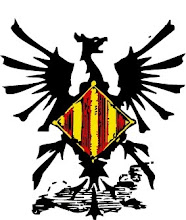BASQUE LEADER ADDRESSES SPAIN MP,s
The leader of the Basque regional government has addressed the Spanish parliament in Madrid, proposing more independence for his homeland. Juan Jose Ibarretxe opened his speech in the Basque language, before continuing in Spanish.
But his proposals for a separate judiciary, financial system and citizenship were dismissed by the Spanish prime minister and other MPs. The autonomy plan is expected to be overwhelmingly rejected in a vote. Mr Ibarretxe began his address in Basque, breaking the parliament's ground rules, which say all discussions must be in Spanish.
'Free state'
"I have come to the Spanish parliament to defend the right of the Basque people to decide their future," he said.
"I sincerely believe there exists a solution ... common ground," he said of the dispute that has led to a violent separatist campaign by Basque group Eta, in which more than 800 people have died since the late 1960s. A month ago, the Basque regional parliament narrowly voted to support his independence plan. Mr Ibarretxe wants a new relationship with Spain, in which a Basque "free state" is largely independent. He is the first leader of one of Spain's 17 semi-autonomous regions to address parliament. But the ruling Socialists and the main opposition, the conservative Popular Party, have already indicated they will vote against the proposals, which they say will only cause divisions in the Basque region.
Prime Minister Jose Luis Rodriguez Zapatero said the plan ignores mainstream sentiment in the Basque country supporting the status quo. "The Basque country's relationship with the rest of Spain will be decided by all Basques, not just half," he said.
Opposition leader Mariano Rajoy said Mr Ibarretxe was eyeing independence, not just more autonomy. "We're going to uphold our duty by rejecting [the proposal]," he said.
However, Mr Ibarretxe has said that regardless of the result in parliament, he intends to hold a referendum on the independence project in his homeland.
Story from BBC NEWS:
http://news.bbc.co.uk/go/pr/fr/-/2/hi/europe/4224885.stm
Published: 2005/02/01 20:04:09 GMT
--------------------
LAWMAKERS REJECT BASQUE POWER PLAN
From CNN Madrid Bureau Chief Al Goodman
Wednesday, February 2, 2005 Posted: 0014 GMT (0814 HKT)
MADRID, Spain (CNN) -- The Spanish Parliament has overwhelmingly rejected a sovereignty plan for the troubled northern Basque region. Some analysts predicted the plan's chief proponent could try to snatch political gain back home in the Basque region from the defeat in Madrid late on Tuesday. The defeat of the plan, by a vote of 313 to 29, with two abstentions, had been widely expected. The ruling Socialist Party and the main opposition conservative Popular Party joined forces to halt the initiative, viewed as unconstitutional in Madrid.
But Spanish Prime Minister Jose Luis Rodriguez Zapatero told Parliament before the vote he was prepared to talk with other political parties, including the Basques, to negotiate an increase in home-rule powers for the region. Parliament voted at 11:40 p.m. (5:40 p.m. ET) Tuesday after a seven and a half-hour debate. The vote was the latest flashpoint in a long-running dispute between the central government and the Basque region, which has been torn by three decades of separatist violence by the outlawed ETA group, blamed for more than 800 deaths across Spain.
A bomb authorities attributed to ETA exploded just last Sunday at a hotel in Denia on the Mediterranean coast, causing two minor injuries and extensive property damage.
The Basque region already has broad home-rule powers, including a regional police force, under Spain's 1978 constitution and a Basque autonomy statute. But the plan's main proponent, Basque regional President Juan Jose Ibarretxe, of the moderate Basque Nationalist Party, wanted to take a further step toward sovereignty. It would make the Basque region, with 2.1 million inhabitants -- about 5 percent of the nation's population -- a "free associated state" with Spain, with power over its courts and a major role in foreign policy.
The plan won a narrow victory in the Basque regional parliament in December and the next hurdle was the Spanish Parliament in Madrid, which is also wrestling with strong nationalist sentiments in another region, Catalonia, whose main city is Barcelona.
"Don't think by saying 'no' you'll end the Basque desire for a solution," Ibarretxe warned Parliament late in the debate.
He also defended "the right of the Basque people to decide their future," and repeatedly called for talks toward a Basque political solution. He blasted the Socialists and conservatives for joining forces to defeat his plan. Some political analysts said Ibarretxe's speeches were aimed at his Basque constituency. It was a rare moment in the national limelight for him. Regional presidents don't usually get to speak to the national Parliament, and the whole affair was broadcast live on Spanish television and radio networks.
Some predicted Ibarretxe would call early Basque elections, angling to use the defeat in Madrid to boost support for his moderate party, which favors more Basque power but rejects ETA's separatist violence. "They know they can't win here," the conservative party leader Mariano Rajoy told Parliament, referring to Ibarretxe's group. "Maybe they want to win something. Maybe votes?"
Prime Minister Zapatero said, "The relationship of Spain to the Basques will be decided by all of the Basques, not half of them" -- a reference to the slim majority Ibarretxe has for his plan in Basque parliament -- "and by all Spaniards."



0 Comments:
Publica un comentari a l'entrada
<< Home